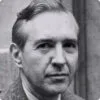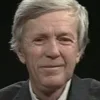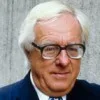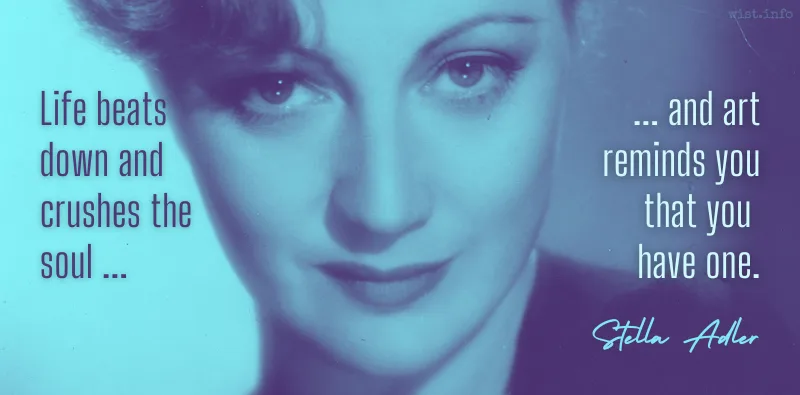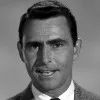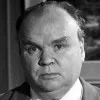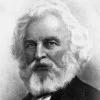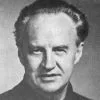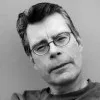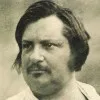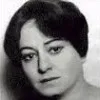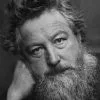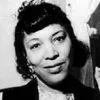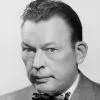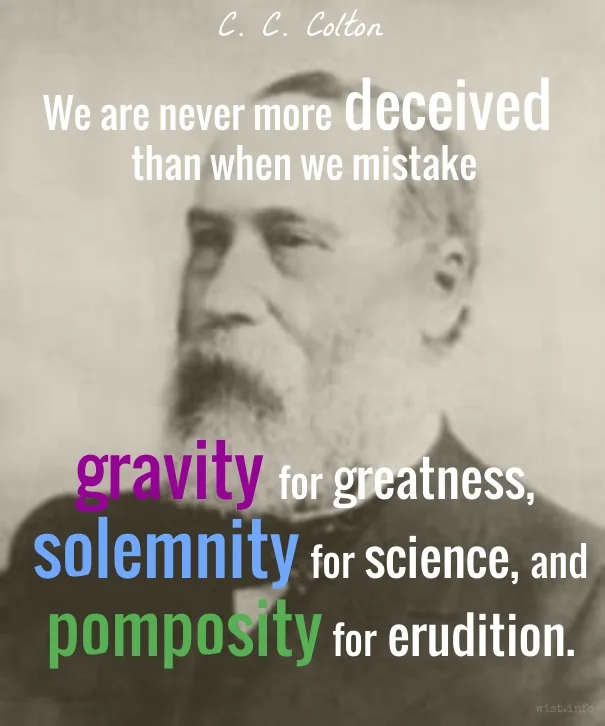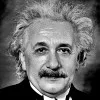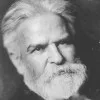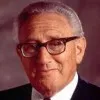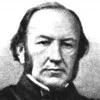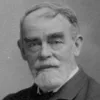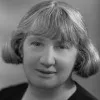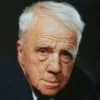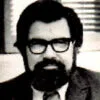And what does this metastasizing testing, for every subject, at every level, at every time of the year, do to kids? It has to mean that students absorb the message that learning is a joyless succession of hoops through which they must jump, rather than a way of understanding and mastering the world. Every question has one right answer; the measure of a person is a number. Being insightful, or creative, or, heaven forfend, counterintuitive counts for nothing.
Anna Quindlen (b. 1953) American journalist, novelist
Article (2005-06-12), “Testing: One, Two, Three,” Newsweek
(Source)
Quotations about:
creativity
Note not all quotations have been tagged, so Search may find additional quotes on this topic.
However, it is my judgment in these things that when you see something that is technically sweet, you go ahead and do it and you argue about what to do about it only after you have had your technical success. That is the way it was with the atomic bomb.
J. Robert Oppenheimer (1904-1967) American theoretical physicist, "Father of the Atomic Bomb" [Julius Robert Oppenheimer]
“In the matter of J. Robert Oppenheimer,” testimony transcript, US Atomic Energy Commission, Personnel Security Board (1954-04-13)
(Source)
The thing that drove Dickens forward into a form of art for which he was not really suited, and at the same time caused us to remember him, was simply the fact that he was a moralist, the consciousness of “having something to say.” He is always preaching a sermon, and that is the final secret of his inventiveness. For you can only create if you can care.
George Orwell (1903-1950) English writer [pseud. of Eric Arthur Blair]
Essay (1939), “Charles Dickens,” sec. 6, Inside the Whale (1940-03-11)
(Source)
Conflict acting on intelligence creates imagination. Faced with conflict, creatures are forced to imagine what will happen, where the next threat will come from. If there has never been conflict, imagination never develops. Wits arise in answer to danger, to pain, to tragedy. No one ever got smarter eating easy apples.
At some time in the future, if the human mind becomes something totally different from what it is now, we may learn to separate literary creation from intellectual honesty. At present we know only that the imagination, like certain wild animals, will not breed in captivity.
George Orwell (1903-1950) English writer [pseud. of Eric Arthur Blair]
“The Prevention of Literature,” Polemic (1946-01)
(Source)
On the suppression of independent writers and writing in totalitarian statues, such as Germany and the Soviet Union, and the apathy of Western intelligentsia about it.
I hope you’ll make mistakes. If you make mistakes, it means you’re out there doing something. And the mistakes in themselves can be very useful. I once misspelled Caroline, in a letter, transposing the As and the O, and I thought, “Coraline looks almost like a real name…”
Neil Gaiman (b. 1960) British author, screenwriter, fabulist
Speech (2012-05-17), Commencement, University of the Arts, Philadelphia [09:17]
(Source)
When you start off, you have to deal with the problems of failure. You need to be thick skinned, to learn that not every project will survive. A freelance life, a life in the arts, is sometimes like putting messages in bottles, on a desert island, and hoping that someone will find one of your bottles and open it and read it, and put something in a bottle that will wash its way back to you: appreciation, or a commission, or money, or love. And you have to accept that you may put out a hundred things for every bottle that winds up coming back.
Neil Gaiman (b. 1960) British author, screenwriter, fabulist
Speech (2012-05-17), Commencement, University of the Arts, Philadelphia [04:53]
(Source)
For the great law of culture is: Let each become all that he was created capable of being; expand, if possible, to his full growth; resisting all impediments, casting off all foreign, especially all noxious adhesions; and show himself at length in his own shape and stature, be these what they may.
Thomas Carlyle (1795-1881) Scottish essayist and historian
“Jean Paul Friedrich Richter,” Edinburgh Review No. 91, Art. 7 (1827-06)
(Source)
A review of Heinrich Döring, Jean Paul Friedrich Richter's Life, with a Sketch of His Works (1826).
Idleness is a necessity for the mind, as much as work. Talent is ruined by writing too much, and rusted by not writing at all.
[L’oisiveté est nécessaire aux esprits, aussi bien que le travail. On se ruine l’esprit à trop écrire; on se rouille à n’écrire pas.]Joseph Joubert (1754-1824) French moralist, philosopher, essayist, poet
Pensées [Thoughts], ch. 23 “Des Qualités de l’Écrivain [Of the Qualities of Writers],” ¶ 53 (1805) (1850 ed.) [tr. Lyttelton (1899), ch. 22, ¶ 20]
(Source)
(Source (French)). Alternate translations:The mind must rest as well as work. To write too much ruins it; to leave off writing rusts it.
[tr. Attwell (1896), ¶ 336]One ruins the mind with too much writing. One rusts it by not writing at all.
[tr. Auster (1983), 1805 entry]
I don’t know that it’s an issue for anybody but me, but it’s true that nothing I did where the only reason for doing it was the money was ever worth it, except as bitter experience. Usually I didn’t wind up getting the money, either. The things I did because I was excited, and wanted to see them exist in reality have never let me down, and I’ve never regretted the time I spent on any of them.
Neil Gaiman (b. 1960) British author, screenwriter, fabulist
Speech (2012-05-17), Commencement, University of the Arts, Philadelphia [06:33]
(Source)
The greatest artists have never been men of taste. By never sophisticating their instincts they have never lost the awareness of the great simplicities, which they relish both from appetite and from the challenge these offer to skill in competition with popular art.
Jacques Barzun (1907-2012) French-American historian, educator, polymath
Essay (1956), “Whirligig: Last Words on Berlioz,” The Energies of Art: Studies of Authors Classic and Modern,
(Source)
Update of an earlier, uncited essay.
The concentration of a small child at play is analogous to the concentration of the artist of any discipline. In real play, which is real concentration, the child is not only outside time, he is outside himself. He has thrown himself completely into whatever it is that he is doing. A child playing a game, building a sand castle, painting a picture, is completely in what he is doing. His self-consciousness is gone; his consciousness is wholly focused outside himself.
An old racetrack joke reminds you that your program contains all the winners’ names. I stare at my typewriter keys with the same thought.
Mignon McLaughlin (1913-1983) American journalist and author
The Neurotic’s Notebook, ch. 5 (1963)
(Source)
Indeed, it is a cruel truth of the history of all art and literature that most would-be poets, writers, and painters fail. The man or woman of real talent is rare, the born genius rarer still. For every book that survives the merciless judgment of time, there are nine hundred and ninety-nine rotting unread in libraries and nine thousand and ninety-nine that were never written in the first place.
Michael Harrington (1928-1989) American writer, political activist, political scientist [Edward Michael Harrington, Jr.]
Fragments of the Century, ch. 2 “The Death of Bohemia” (1973)
(Source)
It is erroneous to tie down individual genius to ideal models. Each person should do that, not which is best in itself, even supposing this could be known, but that which he can do best, which he will find out if left to himself. Spenser could not have written Paradise Lost, nor Milton the Faerie Queene. Those who aim at faultless regularity will only produce mediocrity, and no one ever approaches perfection except by stealth, and unknown to themselves.
William Hazlitt (1778-1830) English writer
“Thoughts on Taste,” Edinburgh Magazine (1819-07)
(Source)
A book is never finished, it is abandoned.
Gene Fowler (1890-1960) American journalist, author, and dramatist. [b. Eugene Devlan]
Quoted in H. Allen Smith, The Life and Legend of Gene Fowler, ch. 27 (1977)
(Source)
So this is my wish, a wish for me as much as it is a wish for you: in the world to come, let us be brave — let us walk into the dark without fear, and step into the unknown with smiles on our faces, even if we’re faking them.
And whatever happens to us, whatever we make, whatever we learn, let us take joy in it. We can find joy in the world if it’s joy we’re looking for, we can take joy in the act of creation.
So that is my wish for you, and for me. Bravery and joy.Neil Gaiman (b. 1960) British author, screenwriter, fabulist
Blog entry (2012-12-31), “My New Year’s Wish”
(Source)
I hope you will have a wonderful year, that you’ll dream dangerously and outrageously, that you’ll make something that didn’t exist before you made it, that you will be loved and that you will be liked, and that you will have people to love and to like in return. And, most importantly (because I think there should be more kindness and more wisdom in the world right now), that you will, when you need to be, be wise, and that you will always be kind.
Neil Gaiman (b. 1960) British author, screenwriter, fabulist
Blog entry (2008-12-31), “Another Year”
(Source)
The most regretful people on earth are those who felt the call to creative work, who felt their own creative power restive and uprising, and gave to it neither power nor time.
If there’s no money in poetry, neither is there poetry in money.
Robert Graves (1895-1985) English poet, novelist, critic
“Mammon,” lecture, London School of Economics and Political Science (1963-12-06)
(Source)
Reprinted in Mammon and the Black Goddess (1965).
We are cups, constantly and quietly being filled.
The trick is knowing how to tip ourselves over and let the beautiful stuff out.Ray Bradbury (1920-2012) American writer, futurist, fabulist
“The Secret Mind,” The Writer (1965-11)
(Source)
Reprinted in Bradbury, Zen in the Art of Writing (1990).
Originality is a thing we constantly clamour for, and constantly quarrel with; as if, observes our author himself, any originality but our own could be expected to content us! In fact all strange thing are apt, without fault of theirs, to estrange us at first view, and unhappily scarcely anything is perfectly plain, but what is also perfectly common.
Thomas Carlyle (1795-1881) Scottish essayist and historian
“Jean Paul Friedrich Richter,” Edinburgh Review No. 91, Art. 7 (1827-06)
(Source)
A review of Heinrich Döring, Jean Paul Friedrich Richter's Life, with a Sketch of His Works (1826).
Genius begins great works; but labour alone finishes them.
[Le génie commence les beaux ouvrages, mais le travail seul les achève.]
Joseph Joubert (1754-1824) French moralist, philosopher, essayist, poet
Pensées [Thoughts], ch. 23 “Des Qualités de l’Écrivain [Of the Qualities of Writers],” ¶ 52 (1850 ed.) [tr. Lyttelton (1899), ch. 22, ¶ 19]
(Source)
(Source (French)). Alternate translations:Genius begins beautiful works, but only labor finishes them.
[tr. Calvert (1866), ch. 8]Genius begins great works; labour alone finishes them.
[tr. Attwell (1896), ¶ 335]Beautiful works. Genius beings them, but labor alone finishes them.
[tr. Auster (1983)], 1801]
Life beats down and crushes the soul, and art reminds you that you have one.
Stella Adler (1901-1992) American actor and acting teacher
Quoted in Barry Paris, ed., Stella Adler on America’s Master Playwrights, Introduction (2012)
(Source)
If you want to really hurt your parents, and you don’t have the nerve to be gay, the least you can do is go into the arts. I’m not kidding. The arts are not a way of making a living. They are a very human way of making life more bearable.
Kurt Vonnegut, Jr. (1922-2007) American novelist, journalist
Man Without a Country, ch. 3 “Here Is a Lesson in Creative Writing” (2005)
(Source)
A cheerful life is what the Muses love,
A soaring spirit is their prime delight.William Wordsworth (1770-1850) English poet
“From the Dark Chambers of Dejection Freed,” ll. 13-14 (1814)
(Source)
We can’t be creative if we refuse to be confused. Change always starts with confusion; cherished interpretations must dissolve to make way for what’s new.
Margaret J. "Meg" Wheatley (b. 1944) American writer, teacher, speaker, management consultant
Turning to One Another, “Willing to Be Disturbed” (2002)
(Source)
Perhaps the meaning of all human activity lies in the artistic consciousness, in the pointless and selfless creative act? Perhaps our capacity to create is evidence that we ourselves were created in the image and likeness of God?
Andrei Tarkovsky (1932-1986) Russian film director, screenwriter, film theorist [Андрей Арсеньевич Тарковский]
Sculpting in Time (1986) [tr. Hunter-Blair]
(Source)
I don’t enjoy any of the process of writing. I enjoy it when it goes on if it zings and it has great warmth and import and it’s successful. Yeah, that’s when I enjoy it. But during the desperate, tough time of creating it, there’s not much I enjoy about it. It tires me and lays me out, which is sort of the way I feel now. Tired.
Rod Serling (1924-1975) American screenwriter, playwright, television producer, narrator
“Rod Serling: The Facts of Life,” interview by Linda Brevelle (4 Mar 1975)
(Source)
The interview was held less than four months before his death from cancer.
The man who has stolen in order never to thieve again remains a thief. Nobody who has ever betrayed his principles can have a pure relationship with life. Therefore when a film-maker says he will produce a pot-boiler in order to give himself the strength and the means to make the film of his dreams — that is so much deception, or worse, self-deception. He will never now make his film.
Andrei Tarkovsky (1932-1986) Russian film director, screenwriter, film theorist [Андрей Арсеньевич Тарковский]
Sculpting in Time (1986) [tr. Hunter-Blair]
(Source)
I write poetry, prose, and everything I do, I do on the principle of Russian borscht. You can throw everything into it — beets, carrots, cabbage, onions, everything you want. What’s important is the result, the taste of the borscht.
Yevgeny Yevtushenko (1933-2017) Russian poet, writer, film director, academic [Евге́ний Евтуше́нко, Evgenij Evtušenko]
“Yevtushenko: A Soviet Poet Turns to Movie Making,” New York Times (2 Feb 1986)
(Source)
I, for example, do not like poems that resemble hay compressed into a geometrically perfect cube. I like it when the hay, unkempt, uncombed, with dry berries mixed in it, thrown together gaily and freely, bounces along atop some truck—and more, if there are some lovely and healthy lasses atop the hay—and better yet if the branches catch at the hay, and some of it tumbles to the road.
Yevgeny Yevtushenko (1933-2017) Russian poet, writer, film director, academic [Евге́ний Евтуше́нко, Evgenij Evtušenko]
“Yevtushenko: A Soviet Poet Turns to Movie Making,” New York Times (2 Feb 1986)
(Source)
When a poet is being a poet — that is, when he is writing or thinking about writing — he cannot be concerned with anything but the making of a poem. If the poem is to turn out well, the poet cannot have thought of whether it will be saleable, or of what its effect on the world should be; he cannot think of whether it will bring him honor, or advance a cause, or comfort someone in sorrow. All such considerations, whether silly or generous, would be merely intrusive; for, psychologically speaking, the end of writing is the poem itself.
The relation between the artist and reality is an oblique one, and indeed there is no good art which is not consciously oblique. If you respect the reality of the world, you know that you can approach that reality only by indirect means.
Richard Wilbur (1921-2017) American poet, literary translator
“The Bottles Become New, Too” (1953), Responses: Prose Pieces, 1953-1976 (1976)
(Source)
Originally published in Quarterly Review of Literature, Vol. 7, No. 3 (1953).
Using Superman’s greatest vulnerability against him — that he is powerless to resist how he is written — to deliberately misrepresent the intentions of his creators or portray him in a way that would best suit some other character strikes me as an oddly blinkered refusal on the part of otherwise imaginative people to even try to conceive what might go on in the mind and motivations of a fictional paragon created to do the right thing with no thought for his own safety.
Grant Morrison (b. 1960) Scottish comic book writer and playwright
“SUPERMAN and THE AUTHORITY annotations Pt 2,” blog entry (16 Feb 2022)
(Source)
The reason I can’t take myself seriously as a “creative artist,” Guy dear, is because I’m not one. It’s not somehow not in me to bear very patiently with my own mediocrity. If I can’t — and I can’t — be Shakespeare or Goethe, I’d rather raise good cabbages. And that is why I would not write at all, except that there is more money in writing than in cabbages, not only more money, but more freedom. […] This is why I’m not “filled with my art.” I ain’t got no art. I’ve got only a kind of craftsman’s skill, and make stories as I make biscuits or embroider underwear or wrap up packages.
Rose Wilder Lane (1886-1968) American journalist, travel writer, novelist, political theorist
Letter to Guy Moyston (25 Jun 1925)
(Source)
Quoted in William Holtz, The Ghost in the Little House: A Life of Rose Wilder Lane, ch. 9, sec. 5 (1995).
So much in writing depends on the superficiality of one’s days. One may be preoccupied with shopping and income tax returns and chance conversations, but the stream of the unconscious continues to flow undisturbed, solving problems, planning ahead: one sits down sterile and dispirited at the desk, and suddenly the words come as though from the air: the situations that seemed blocked in a hopeless impasse move forward: the work has been done while one slept or shopped or talked with friends.
Graham Greene (1904-1991) English novelist [Henry Graham Greene]
The End of the Affair, Book 1, ch. 2 (1951)
(Source)
You damn every poem I write,
Yet you won’t publish those of your own.
Now kindly let yours see the light,
Or else leave my damned ones alone.[Cum tua non edas, carpis mea carmina, Laeli.
Carpere vel noli nostra vel ede tua.]Martial (AD c.39-c.103) Spanish Roman poet, satirist, epigrammatist [Marcus Valerius Martialis]
Epigrams [Epigrammata], Book 1, epigram 91 (1.91) (AD 85-86) [tr. Nixon (1911)]
(Source)
"To Lælius". (Source (Latin)). Alternate translations:Thou blam'st my verses and conceal'st thine own:
Or publish thine, or else let mine alone!
[tr. Killigrew (1695)]You do not publish your own verses, Laelius; you criticise mine. Pray cease to criticise mine, or else publish your own.
[tr. Bohn's Classical (1859)]Although you don't publish your own, you carp at my poems, Laelius. Either do not carp at mine, or publish your own.
[tr. Ker (1919)]You blame my verse; to publish you decline;
Show us your own or cease to carp at mine.
[tr. Pott & Wright (1921)]Although you have not published
Even a single line
Of poetry yourself, you scoff
And sneer and jeer at mine.
Get off my back or publish!
I'd like to hear you whine!
[tr. Marcellino (1968)]Although you don't punish anything, Laelius,
you keep finding fault with my songs. So please,
stop criticizing my stuff, or publish your own.
[tr. Bovie (1970)]Although you don't publish your own poems, Laelius, you carp at mine. Either don't carp at mine or publish your own.
[tr. Shackleton Bailey (1993)]Each poem I publish you loudly bemoan.
Unfair that you never share works of your own.
[tr. Ericsson (1995)]You don’t write poems, Laelius, you criticise mine. Stop criticising me or write your own.
[tr. Kline (2006)]With carpings you my works revile.
Your own you never publish.
Without such works, your carpings I'll
Consider snooty rubbish.
[tr. Wills (2007), "The Critic"]You blast my verses, Laelius; yours aren’t shown.
Either don’t carp at mine or show your own.
[tr. McLean (2014)]You won’t reveal your verse,
but whine that mine is worse.
Just leave me alone
or publish your own.
[tr. Juster (2016)]You never wrote a poem,
yet criticize mine?
Stop abusing me or write something fine
of your own!
[tr. Burch (c. 2017)]
there’s a bluebird in my heart that
wants to get out
but I’m too tough for him,
I say, stay in there, I’m not going
to let anybody see
you.
Men write history for the same reason they write poetry, study the properties of numbers, or play football — for the joy of creation; men read history for the same reason they listen to music or watch cricket — for the joy of appreciation.
A. J. P. Taylor (1906-1990) British historian, journalist, broadcaster [Alan John Percivale Taylor]
“The Historian,” Manchester Guardian (5 Aug 1938)
(Source)
The way you win as a creative person is to learn to love the work and not the applause.
Bob Dylan (b. 1941) American singer, songwriter
(Misattributed)
Attributed to Dylan, but it actually appears to be from an article by Brian Herzog, "Don't Write for Applause" (28 May 2015), which touched on Dylan.
The highest exercise of imagination is not to devise what has no existence, but rather to perceive what really exists, though unseen by the outward eye, — not creation, but insight.
Imagination continually frustrates tradition; that is its function.
John Pfeiffer (1914-1999) American anthropologist, author
“Nature, the Radical Conservative,” New York Times (29 Apr 1979)
(Source)
Book review of Gregory Bateson, Mind and Nature. This quotation is frequently misattributed to Jules Feiffer.
JERRY: Writing is also one of those things like … I’d rather fill in all the “o”s in the phone book. [Laughs]. You know what I mean? Anything is more fun than trying to write songs.
BOB: I’d rather be in the dentist’s chair. The blank page is the most frightening, most horrifying, the most toothy, snarling, god-awful thing I can imagine.
JERRY: Any excuse to not do it is good enough.
BOB: Man, look at those dishes mounting up. How can I work in this pigsty?
Jerry Garcia (1942-1995) American singer-songwriter and guitarist
Interview of Jerry Garcia and Bob Weir by Jon Sievert, Guitar Player Magazine (1993-05-20)
The interview was reprinted in Best of Guitar Player - Grateful Dead (1993-09). (Many thanks to Ryan Curry for sharing the photo.)
Clichés, stock phrases, adherence to conventional, standardized codes of expression and conduct have the socially recognized function of protecting us against reality, that is, against the claim on our thinking attention that all events and facts make by virtue of their existence.
Hannah Arendt (1906-1975) German-American philosopher, political theorist
“Thinking and Moral Considerations: A Lecture,” Social Research (Fall 1971)
(Source)
Referring to Adolf Eichmann's use of "cliché-ridden language" as a sign of his "thoughtlessness." Reprinted in The Life of the Mind, Part 1 "Thinking," Introduction (1974).
No one has ever written, painted, sculpted, modeled, built, or invented except literally to get out of hell.
Antonin Artaud (1896-1948) French playwright, actor, director
Van Gogh, the Man Suicided by Society [Le Suicidé de la Société] (1947) [tr. Watson]
(Source)
When a little child hears a pleasant sound, it cries, “Again! again!” But soon mere repetition fails to satisfy. The child imitates the sound, and that fails, too. At last it achieves happiness in the creation of a new sound. Older children always sit down to paint or write after they have seen a picture or read a story that appeals to them, and attempt to create. So life ought to be a struggle of desire towards adventures whose nobility will fertilise the soul and lead to the conception of new, glorious things. To avoid the ordeal of emotion that leads to the conception is the impulse of death. Sterility is the deadly sin.
Rebecca West (1892-1983) British author, journalist, literary critic, travel writer [pseud. for Cicily Isabel Fairfield]
“The Gospel According to Granville-Parker,” The Freewoman (7 Mar 1912)
(Source)
Re-published in The Young Rebecca: Writings of Rebecca West, 1911-17 (1982).
Artists and scientists realize that no solution is ever final, but that each new creative step points the way to the next artistic or scientific problem. In contrast, those who embrace religious revelations and delusional systems tend to see them as unshakeable and permanent.
Anthony Storr (1920-2001) English psychiatrist and author
Feet of Clay: Saints, Sinners and Madmen, Introduction (1996)
(Source)
Writing isn’t about making money, getting famous, getting dates, getting laid, or making friends. In the end, it’s about enriching the lives of those who will read your work, and enriching your own life, as well. It’s about getting up, getting well, and getting over. Getting happy, okay? Getting happy. […] Writing is magic, as much the water of life as any other creative art. The water is free. So drink. Drink and be filled up.
In religions which have lost their creative spark, the gods eventually become no more than poetic motifs or ornaments for decorating human solitude and walls.
Most artists, ashamed of their need for encouragement, try to carry their work to term like a secret pregnancy. … We bunker in with our projects, beleaguered by our loneliness and the terrible secret that we carry: We need friends to our art. We need them as desperately as friends to our hearts. Our projects, after all, are our brainchildren, and what they crave is a loving extended family, a place where “How’d it go today?” can refer to a turn at the keys or the easel as easily as a turn in the teller’s cage.”
Julia Cameron (b. 1948) American teacher, author, filmmaker, journalist
“Taking Heart,” The Sound of Paper (2005)
(Source)
The wretched Artist himself is alternatively the lowest worm that ever crawled when no fire is in him: or the loftiest God that ever sang when the fire is going.
Caitlin Thomas (1913-1994) British author, wife of Dylan Thomas [née Macnamara]
Not Quite Posthumous Letter to My Daughter (1963)
(Source)
Beauty, like truth and goodness, is a quality that may in one sense be predicated of all great art, but the deliberate attempt to beautify can, in itself, only weaken the creative energy. Beauty in art is like happiness in morals: it may accompany the act, but it cannot be the goal of the act, just as one cannot “pursue happiness,” but only something else that may give happiness.
Northrop Frye (1912-1991) Canadian literary critic and literary theorist
Anatomy of Criticism, “Mythical Phase: Symbol as Archetype” (1957)
(Source)
It is the artists who make the true value of the world, though at times they may have to starve to do it. They are like earthworms, turning up the soil so things can grow, eating dirt so that the rest of us may eat green shoots.
Ideas come when we do not expect them, and not when we are brooding and searching at our desks. Yet ideas would certainly not come to mind had we not brooded at our desks and searched for answers with passionate devotion.
Max Weber (1864-1920) German sociologist, philosopher, political economist [Maximilian Karl Emil Weber]
“Science as a Vocation [Wissenscahft als Beruf],” Speech, Munich University (1918) [tr. Gerth & Mills (1948)]
(Source)
Alt. trans.:
- "Ideas come when they are least expected, rather than while you are racking your brains at your desk. But, by the same token, they would not have made their appearance if we had not spent many hours pondering at our desks or brooding passionately over the problems facing us." [tr. Livingstone]
- "[Ideas] come, at any rate, when one does not expect them, not while racking one's brains and pondering at one's desk. Of course, the ideas would not have occurred to us without our having been through the state of racking our brains and being engaged in impassioned questioning." [tr. Wells (2018)]
In relation to his public, the artist of to-day […] walks at first with his companions, till one day he falls through a hole in the brambles, and from that moment is following the dark rapids of an underground river which may sometimes flow so near the surface that the laughing picnic parties are heard above, only to re-immerse itself in the solitude of the limestone and carry him along its winding tunnel, until it gushes out through the misty creeper-hung cave which he has always believed to exist, and sets him back in the sun.
Cyril Connolly (1903-1974) English intellectual, literary critic and writer.
“Writers and Society, 1940-3” (1943), The Condemned Playground (1946)
(Source)
More gold has been mined from the brains of men than has ever been taken from the earth.
Napoleon Hill (1883-1970) American author, motivational writer
Think and Grow Rich (1937)
(Source)
In some editions this is given as: "More gold has been mined from the thoughts of men than has ever been taken from the earth."
The brain is only three pounds of blood, dream, and electricity, and yet from that mortal stew come Beethoven’s sonatas. Dizzy Gillespie’s jazz. Audrey Hepburn’s wish to spend the last month of her life in Somalia, saving children.
Diane Ackerman (b. 1948) American poet, author, naturalist
A Natural History of Love, “Brain-Stem Sonata: The Neurophysiology of Love” (1994)
(Source)
The first step — especially for young people with energy and drive and talent, but not money — the first step to controlling your world is to control your culture. To model and demonstrate the kind of world you demand to live in. To write the books. Make the music. Shoot the films. Paint the art.
If the artist does not throw himself into his work as Curtius sprang into the gulf, as a soldier leads a forlorn hope without a moment’s thought, and if when he is in the crater he does not dig as a miner does when the earth has fallen in on him; if he contemplates the difficulties before him instead of conquering them one by one, like the lovers in fairy tales, who to win their princesses overcome ever-new enchantments, the work remains incomplete; it perishes in the studio where creativeness becomes impossible, and the artist looks on the suicide of his own talent.
[Si l’artiste ne se précipite pas dans son oeuvre, comme Curtius dans le gouffre, comme le soldat dans la redoute, sans réfléchir; et si, sans ce cratère, il ne travaille pas comme le mineur enfoui sous un éboulement: s’il contemple enfin les difficultés au lieu de las vaincre une à une, à l’example de ces amoureux des féeries, qui pour obtenir leurs princesses, combattaient des enchantements renaissants, l’oeuvre reste inachevée, elle périt au fond de l’atelier où la production devient impossible, et l’artiste assiste au suicide de son talent.]
Honoré de Balzac (1799-1850) French novelist, playwright
Cousin Betty [La Cousine Bette] (1846) [tr. Waring (1899)]
(Source)
Curtius is the young Roman patrician, Marcus Curtius. In 362 BC, a chasm opened up in Rome's forum, and soothsayers proclaimed it could only be filled by Rome's greatest treasure. Curtius mounted his horse and leapt into the chasm, which then closed over him.
Alt. trans.:
- "If the artist does not throw himself into his work, like Curtius into the gulf beneath the Forum, like a soldier against a fortress, without hesitation, and if, in that crater, he does not work like a miner under a fall of rock, if, in short, he envisages the difficulties instead of conquering them one-by-one, following the examples of lovers in fairy-tales who, to win their princesses, struggle against recurring enchantments, the work remains unfinished, it expires in the studio, wher production remains impossible and the artist looks on at the suicide of his own talent." [tr. Raphael (1992)]
- "If the artist does not fling himself, without reflecting, into his work, as Curtius flung himself into the yawning gulf, as the soldier flings himself into the enemy's trenches, and if, once in this crater, he does not work like a miner on whom the walls of his gallery have fallen in; if he contemplates difficulties instead of overcoming them one by one ... he is simply looking on at the suicide of his own talent." [Source]
- Original French.
An artist’s job is to make order out of chaos. You collect details, look for a pattern, and organize. You make sense out of senseless facts. You puzzle together bits of everything. You shuffle and reorganize. Collage. Montage. Assemble.
business business business
grind grind grind
what a life for a man
that might have been a poetDon Marquis (1878-1937) American journalist and humorist
“pete the parrot and shakespeare,” archy and mehtabel (1927)
(Source)
As a carpenter can make a gibbet as well as an altar, a writer can describe the world as trivial or exquisite, as material or as idea, as senseless or as purposeful. Words are wood.
I always make the first Verse well, but I’m perplex’d about the rest.
[Je fais toujours bien le premier vers: mais j’ai peine à faire les autres.]
Molière (1622-1673) French playwright, actor [stage name for Jean-Baptiste Poquelin]
The Romantick Ladies [Les Précieuses Ridicules], Act 1, sc. 11 (1659)
(Source)
Alt. trans.: "I always make the first verse well, but I have trouble making the others."
In art, there are only two types of people: revolutionaries and plagiarists. And in the end, doesn’t the revolutionary’s work become official, once the State takes it over?
Paul Gauguin (1848-1903) French painter [Eugène Henri Paul Gauguin]
Letter in Le Soir (25 Apr 1895)
Collected in Daniel Guérin, ed., The Writings of a Savage (1996) [tr. Levieux].
Often given as "Art is either plagiarism or revolution," or sometimes "Art is either a revolutionist or a plagiarist." This is often cited from James Huneker, The Pathos of Distance (1913), but there it is given as a paraphrase: "Paul Gauguin has said that in art one is either a plagiarist or a revolutionary."
(Huneker's book elsewhere contains the parallel paraphrase, "Paul Gauguin has said that all artists are either revolutionists or reactionists.")
One must not always think that feeling is everything. Art is nothing without form.
I hate writing. I love having written.
Dorothy Parker (1893-1967) American writer, poet, wit
(Spurious)
Not found in any of Parker's works, and not attributed to her until several years after her death. The earliest rendition of a thought like this ("Don't like to write, but like having written") comes from novelist Frank Norris in a posthumous letter published in "The Bellman's Book Plate: The Writing Grind," The Bellman (4 Dec 1915).
More discussion here: Don’t Like to Write, But Like Having Written – Quote Investigator.
See also Pratchett.
Yet I think that to all living things there is a pleasure in the exercise of their energies, and that even beasts rejoice in being lithe and swift and strong. But a man at work, making something which he feels will exist because he is working at it and wills it, is exercising the energies of his mind and soul as well as of his body. Memory and imagination help him as he works. Not only his own thoughts, but the thoughts of the men of past ages guide his hands; and, as a part of the human race, he creates. If we work thus we shall be men, and our days will be happy and eventful.
William Morris (1834-1896) British textile designer, writer, socialist activist
“Useful Work versus Useless Toil,” lecture (1884)
(Source)
Printed in Signs of Change (1888).
His imagination resembled the wings of an ostrich. It enabled him to run, though not to soar. When he attempted the highest flights, he became ridiculous; but, while he remained in a lower region, he outstripped all competitors.
The greatest foe to art is luxury, art cannot live in its atmosphere.
William Morris (1834-1896) British textile designer, writer, socialist activist
“The Beauty of Life,” lecture, Birmingham Society of Arts and School of Design (19 Feb 1880)
(Source)
ANTON EGO: In many ways, the work of a critic is easy. We risk very little, yet enjoy a position over those who offer up their work and their selves to our judgment. We thrive on negative criticism, which is fun to write and to read. But the bitter truth we critics must face, is that in the grand scheme of things, the average piece of junk is probably more meaningful than our criticism designating it so.
If you explain the basics of any one of these ideas, they probably will sound as nutty as a cooking French rat or a silent film starring robots in a post-apocalyptic world. Each one of those films, when we were in preparation on them, the financial community said each one of them stunk and none of them had the ability to be a financial success. And then the film would come out and they’d go, “Well, they did it that time but the next one sounds like a piece of crap.”
Brad Bird (b. 1957) American director, animator and screenwriter [Phillip Bradley Bird]
Interview with Drew Tailor, IndieWire (20 Dec 2011)
(Source)
A successful party is a creative act, and creation is always painful.
Phyllis McGinley (1905-1978) American author, poet
“Party Line,” Ladies’ Home Journal (1962)
(Source)
Later reprinted in Sixpence in Her Shoe (1964).
Certainly it is presumptuous to say that we cannot improve, and that Man, who has only been in power for a few thousand years, will never learn to make use of his power. All I mean is that, if people continue to kill one another as they do, the world cannot get better than it is, and that, since there are more people than formerly, and their means for destroying one another superior, the world may well get worse. What is good in people — and consequently in the world — is their insistence on creation, their belief in friendship and loyalty for their own sakes; and, though Violence remains and is, indeed, the major partner in this muddled establishment, I believe that creativeness remains too, and will always assume direction when violence sleeps.
E. M. Forster (1879-1970) English novelist, essayist, critic, librettist [Edward Morgan Forster]
“What I Believe,” The Nation (16 Jul 1938)
(Source)
Creativity is allowing oneself to make mistakes. Art is knowing which ones to keep.
Scott Adams (b. 1957) American cartoonist
Stick to Drawing Comics, Monkey Brain, Appendix B (2007)
(Source)
I realize that all society rests upon force. But all the great creative actions, all the decent human relations, occur during the intervals when force has not managed to come to the front. These intervals are what matter. I want them to be as frequent and as lengthy as possible, and I call them “civilization”.
E. M. Forster (1879-1970) English novelist, essayist, critic, librettist [Edward Morgan Forster]
“What I Believe,” The Nation (16 Jul 1938)
(Source)
Democracy is not a beloved Republic really, and never will be. But it is less hateful than other contemporary forms of government, and to that extent it deserves our support. It does start from the assumption that the individual is important, and that all types are needed to make a civilization. It does not divide its citizens into the bossers and the bossed — as an efficiency-regime tends to do. The people I admire most are those who are sensitive and want to create something or discover something, and do not see life in terms of power, and such people get more of a chance under a democracy than elsewhere. They found religions, great or small, or they produce literature and art, or they do disinterested scientific research, or they may be what is called “ordinary people”, who are creative in their private lives, bring up their children decently, for instance, or help their neighbours. All these people need to express themselves; they cannot do so unless society allows them liberty to do so, and the society which allows them most liberty is a democracy.
E. M. Forster (1879-1970) English novelist, essayist, critic, librettist [Edward Morgan Forster]
“What I Believe,” The Nation (16 Jul 1938)
(Source)
May your coming year be filled with magic and dreams and good madness. I hope you read some fine books and kiss someone who thinks you’re wonderful, and don’t forget to make some art — write or draw or build or sing or live as only you can. And I hope, somewhere in the next year, you surprise yourself.
Neil Gaiman (b. 1960) British author, screenwriter, fabulist
Blog entry (2001-12-31), “As I Was Saying”
(Source)
I’m convinced if I keep going one day I will write something decent. On very bad days I will observe that I must have written good things in the past, which means that I’ve lost it. But normally I just assume that I don’t have it. The gulf between the thing I set out to make in my head and the sad, lumpy thing that emerges into reality is huge and distant and I just wish that I could get them closer.
Neil Gaiman (b. 1960) British author, screenwriter, fabulist
“This Much I Know,” The Guardian (2017-08-05)
(Source)
Why do I write? I guess that’s been asked of every writer. I don’t know. It isn’t any massive compulsion. I don’t feel, you know, God dictated that I should write. You know, thunder rends the sky and a bony finger comes down from the clouds and says, “You. You write. You’re the anointed.” I never felt that. I suppose it’s part compulsion, part a channel for what your brain is churning up.
Rod Serling (1924-1975) American screenwriter, playwright, television producer, narrator
“Rod Serling: The Facts of Life,” Interview with Linda Brevelle (4 Mar 1975)
(Source)
If poetry is like an orgasm, an academic can be likened to someone who studies the passion-stains on the bedsheets.
Irving Layton (1912-2006) Romanian-Canadian poet [b. Israel Pincu Lazarovitch]
“Obs II,” The Whole Bloody Bird (1969)
(Source)
I suppose we think euphemistically that all writers write because they have something to say that is truthful and honest and pointed and important. And I suppose I subscribe to that, too. But God knows when I look back over thirty years of professional writing, I’m hard-pressed to come up with anything that’s important. Some things are literate, some things are interesting, some things are classy, but very damn little is important.
Rod Serling (1924-1975) American screenwriter, playwright, television producer, narrator
“Rod Serling: The Facts of Life,” interview by Linda Brevelle (4 Mar 1975)
(Source)
Coming up with ideas is the easiest thing on earth. Putting them down is the hardest.
Rod Serling (1924-1975) American screenwriter, playwright, television producer, narrator
“Writing for Television – Conversations with Rod Serling,” Ithaca College (1972)
(Source)
Imitation is the sincerest form of television.
Fred Allen (1894-1956) American humorist [b. John Florence Sullivan]
(Attributed)
Sometimes attributed to Steve Allen. See Colton.
Christopher Columbus discovered the West Indies, and Alexander Graham Bell invented the telephone. We do not call their achievements creations because they are not personal enough. The West Indies were there all the time; and as for the telephone, we feel that Bell’s ingenious thought was somehow not fundamental. The groundwork was there, and if not Bell then someone else would have stumbled on the telephone almost as accidentally as on the West Indies.
By contrast, we feel that Othello is genuinely a creation. This is not because Othello came out of a clear sky; it did not. There were Elizabethan dramatists before William Shakespeare, and without them he could not have written as he did. Yet within their tradition Othello remains profoundly personal; and though every element in the play has been a theme of other poets, we know that the amalgam of these elements is Shakespeare’s; we feel the presence of his single mind. The Elizabethan drama would have gone on without Shakespeare, but no one else would have written Othello.
A harmless hilarity and a buoyant cheerfulness are not infrequent concomitants of genius; and we are never more deceived than when we mistake gravity for greatness, solemnity for science, and pomposity for erudition.
Charles Caleb "C. C." Colton (1780-1832) English cleric, writer, aphorist
Lacon: Or, Many Things in Few Words, Vol. 1, § 202 (1820)
(Source)
Reading after a certain age diverts the mind too much from its creative pursuits. Any man who reads too much and uses his own brain too little falls into lazy habits of thinking, just as the man who spends too much time in the theater is tempted to be content with living vicariously instead of living his own life.
If you have a good idea, get it out there. For every idea I’ve realized, I have ten I sat on for a decade till someone else did it first. Write it. Shoot it. Publish it. Crochet it, sauté it, whatever. MAKE.
Joss Whedon (b. 1964) American screenwriter, author, producer [Joseph Hill Whedon]
“Dollhouse’s Joss Whedon Answers Your Questions,” Hulu Blog (9 Mar 2009)
(Source)
Hasten slowly, and without losing heart,
Put your work twenty times upon the anvil.[Hâtez-vous lentement ; et, sans perdre courage,
Vingt fois sur le métier remettez votre ouvrage.]
You should make something. You should bring something into the world that wasn’t in the world before. It doesn’t matter what it is. It doesn’t matter if it’s a table or a film or gardening — everyone should create. You should do something, then sit back and say, “I did that.”
Ricky Gervais (b. 1961) English comedian, actor, director, writer
Interview with Scott Raab, Esquire (12 Jan 2012)
(Source)
Variant: "If you spend your days doing what you love, it is impossible to fail. So I go about my days trying to bring something into the world that wasn’t in the world before. And then everyone gets furious about it. And then I sit back and say, 'I did that!'" [Biography interview (11 Jan 2016)]
There are three difficulties in authorship: to write anything worth the publishing, to find honest men to publish it, and to get sensible men to read it.
Charles Caleb "C. C." Colton (1780-1832) English cleric, writer, aphorist
Lacon: or, Many Things in Few Words, Preface (1820)
(Source)
Difference must be not merely tolerated, but seen as a fund of necessary polarities between which our creativity can spark like a dialectic. Only then does the necessity for interdependency become unthreatening. Only within that interdependency of different strengths, acknowledged and equal, can the power to seek new ways of being in the world generate, as well as the courage and sustenance to act where there are no charters.
Audre Lorde (1934-1992) American writer, feminist, civil rights activist
“The Master’s Tools Will Never Dismantle the Master’s House” (1979)
(Source)
The problem is never how to get new, innovative thoughts into your mind, but how to get old ones out. Every mind is a room packed with archaic furniture. You must get the old furniture of what you know, think, and believe out before anything new can get in. Make an empty space in any corner of your mind, and creativity will instantly fill it.
Dee W. Hock (1929-2022) American businessman
In M. Mitchell Waldrop, “Dee Hock on Management,” Fast Company (Oct/Nov 1996)
(Source)
What nobody tells people who are beginners, and I really wish someone had told this to me, is that […] all of us who do creative work, we get into it, and we get into because we have good taste. […] But you get into this thing […] and there’s a gap. For the first couple of years that you’re making stuff, what you’re making isn’t so good. It’s not that great. It’s really not that great. It’s trying to be good, it has ambition to be good, but it’s not quite that good. But your taste, the thing that got you into the game, your taste is still killer. And your taste is good enough that you can tell that what you’re making is kind of a disappointment to you. That you can tell it’s still sort of crappy. A lot of people never get past that phase. A lot of people at that point, they quit. […] The thing I want to tell you is, everybody goes through that. […] It’s totally normal. And the most important possible thing you can do is do a lot of work. Do a huge volume of work. Put yourself on a deadline so that every week or every month you know you’re going to finish one story. […] Because it’s only by actually going through a volume of work that you’re going to catch up and close that gap. And the work you’re making will be as good as your ambitions. […] It’s going to take you awhile. It’s normal to take a while. You just have to fight your way through that.
Ira Glass (b. 1959) American report, radio personality, producer
“This American Life,” Public Radio International (Aug 2009)
(Source)
When I was introduced to art school, everybody was 20, 22, and 25 years old. Many of them had graduated from college. So there I was, and I was about half their height. And I looked at these guys and I thought, “I can’t compete with these birds!” So at the end of the first week I went home. I was so disillusioned. I was a failure at 15. So my uncle, who lived with us occasionally, came up and he said, “You look awful. You look like something the dog had under the front porch. What’s the matter?” “I can’t compete with these guys at school. They draw like Leonardo da Vinci. I’ll never catch up with them.” I felt like it was the end of the world for me. I could draw a little bit. But I couldn’t keep up with the big guys. So I suddenly blurted out and I said, “You can’t make a racehorse out of a pig!” And my uncle looked at me very gently, and he patted me on the knee, and he said, “No. But you can make a very fast pig.” And I realized that’s what it was really all about. I could only be as good as I could be, whatever my limits were. And I learned a second thing: creative work is never competitive.
Chuck Jones (1912-2002) American animator, screenwriter, producer, and director
Interview with Tom Sito, Archive of American Television (17 Jun 1998)
(Source)
Songwriting is about getting the demon out of me. It’s like being possessed. You try to go to sleep, but the song won’t let you. So you have to get up and make it into something, and then you’re allowed to sleep. It’s always in the middle of the bloody night, or when you’re half-awake or tired, when your critical faculties are switched off. So letting go is what the whole game is.
Creativity is merely a plus name for regular activity; the ditchdigger, dentist, and artist go about their tasks in much the same way, and any activity becomes creative when the doer cares about doing it right, or better.
The enemy of art is the absence of limitations.
Orson Welles (1915-1985) American writer, director, actor
Comment to Henry Jaglom
Quoted by Jaglom in his essay "The Independent Filmmaker" in Jason E. Quire, ed. The Movie Business Book (1992). See here for more information. Sometimes paraphrased in reverse ("The absence of limitations is the enemy of art").
There is no great invention, from fire to flying, which has not been hailed as an insult to some god.
J.B.S. Haldane (1892-1964) English geneticist [John Burden Sanderson Haldane]
“Daedalus, or Science and the Future,” speech, Cambridge (24 Feb 1923)
(Source)
Don’t panic. Midway through writing a novel, I have regularly experienced moments of bowel-curdling terror, as I contemplate the drivel on the screen before me and see beyond it, in quick succession, the derisive reviews, the friends’ embarrassment, the failing career, the dwindling income, the repossessed house, the divorce … Working doggedly on through crises like these, however, has always got me there in the end. Leaving the desk for a while can help. Talking the problem through can help me recall what I was trying to achieve before I got stuck. Going for a long walk almost always gets me thinking about my manuscript in a slightly new way. And if all else fails, there’s prayer. St Francis de Sales, the patron saint of writers, has often helped me out in a crisis. If you want to spread your net more widely, you could try appealing to Calliope, the muse of epic poetry, too.
Sarah Waters (b. 1966) Welsh novelist
In “Ten Rules for Writing Fiction,” The Guardian (20 Feb 2010)
(Source)
HENRY: I don’t think writers are sacred, but words are. They deserve respect. If you get the right ones in the right order, you might nudge the world a little or make a poem that children will speak for you when you are dead.
Tom Stoppard (b. 1937) Czech-English playwright and screenwriter
The Real Thing, Act 2, sc. 5 (1982)
(Source)
All worthy work is open to interpretations the author did not intend. Art isn’t your pet — it’s your kid. It grows up and talks back to you.
Joss Whedon (b. 1964) American screenwriter, author, producer [Joseph Hill Whedon]
“I Am Joss Wedon — AMA,” Reddit (10 Apr 2012)
(Source)
On fan fiction and academic analysis.
The Muse was suddenly there for Dad.
The Truth lay easy in his mind.
The Subconscious lay saying its say, untouched, and flowing off his tongue.
As we must learn to do in our writing.
As we can learn from every man or woman or child around us when, touched and moved, they tell of something they loved or hated this day, yesterday, or some other day long past. At a given moment, the fuse, after sputtering wetly, flares and the fireworks begin.
Oh, it’s limping crude hard work for many, with language in their way. But I have heard farmers tell about their very first wheat crop on their first farm after moving from another state, and if it wasn’t Robert Frost talking, it was his cousin, five times removed. I have heard locomotive engineers talk about America in the tones of Thomas Wolfe who rode our country with his style as they ride it in their steel. I have heard mothers tell of the long night with their firstborn when they were afraid that they and the baby might die. And I have heard my grandmother speak of her first ball when she was seventeen. And they were all, when their souls grew warm, poets.Ray Bradbury (1920-2012) American writer, futurist, fabulist
“How to Keep and Feed a Muse,” The Writer (1961-07)
(Source)
Reprinted in Bradbury, Zen in the Art of Writing (1990).
Readers usually grossly underestimate their own importance. If a reader cannot create a book along with the writer, the book will never come to life. Creative involvement: that’s the difference between reading a book and watching TV. In watching TV, we are passive — sponges; we do nothing. In reading, we must become creators, imagining the setting of the story, seeing the facial expressions, hearing the inflection of the voices. The author and the reader “know” each other; they meet on the bridge of words.
The truth is, as every one knows, that the great artists of the world are never Puritans, and seldom even ordinarily respectable. No virtuous man — that is, virtuous in the Y.M.C.A. sense — has ever painted a picture worth looking at, or written a symphony worth hearing, or a book worth reading.
Art is a jealous mistress, and, if a man have a genius for painting, poetry, music, architecture, or philosophy, he makes a bad husband and an ill provider.
Ralph Waldo Emerson (1803-1882) American essayist, lecturer, poet
Essay (1860), “Wealth,” The Conduct of Life, ch. 3
(Source)
Based on a course of lectures, "The Conduct of Life," delivered in Pittsburg (1851-03).
For it is a mad world and it will get madder if we allow the minorities, be they dwarf or giant, orangutan or dolphin, nuclear-head or water-conversationalist, pro-computerologist or Neo-Luddite, simpleton or sage, to interfere with aesthetics. The real world is the playing ground for each and every group, to make or unmake laws. But the tip of the nose of my book or stories or poems is where their rights end and my territorial imperatives begin, run and rule. If Mormons do not like my plays, let them write their own. If the Irish hate my Dublin stories, let them rent typewriters. If teachers and grammar school editors find my jawbreaker sentences shatter their mushmilk teeth, let them eat stale cake dunked in weak tea of their own ungodly manufacture.
Ray Bradbury (1920-2012) American writer, futurist, fabulist
Fahrenheit 451, “Coda” Afterword (1979 ed.)
(Source)
Life is sometimes hard. Things go wrong, in life and in love and in business and in friendship and in health and in all the other ways that life can go wrong. And when things get tough, this is what you should do.
Make. good. art.
I’m serious. Husband runs off with a politician? Make good art. Leg crushed and then eaten by mutated boa constrictor? Make good art. IRS on your trail? Make good art. Cat exploded? Make good art. Somebody on the Internet thinks what you do is stupid or evil or it’s all been done before? Make good art. Probably things will work out somehow, and eventually time will take the sting away, but that doesn’t matter. Do what only you do best. Make. good. art.
Make it on the good days too.Neil Gaiman (b. 1960) British author, screenwriter, fabulist
Speech (2012-05-17), Commencement, University of the Arts, Philadelphia [10:08]
(Source)
(Source (Video)). In the video, he starts it as "Sometimes life is hard." In the middle, he says it as, "Somebody on the Internet thinks what you're doing ..." He also adds "Make it on the bad days" before the final sentence.
Creativity is allowing yourself to make mistakes. Art is knowing which ones to keep.
Scott Adams (b. 1957) American cartoonist
The Dilbert Principle (1996)
Sometimes misquoted as "Design is knowing which ones to keep." Sometimes misattributed to Douglas Adams or Ricky Gervais. More information here.
When you feel the story is beginning to pick up rhythm — the characters are shaping up, you can see them, you can hear their voices, and they do things that you haven’t planned, things you couldn’t have imagined — then you know the book is somewhere, and you just have to find it, and bring it, word by word, into this world.
And now go, and make interesting mistakes, make amazing mistakes, make glorious and fantastic mistakes. Break rules. Leave the world more interesting for your being here. Make good art.
Neil Gaiman (b. 1960) British author, screenwriter, fabulist
Speech (2012-05-17), Commencement, University of the Arts, Philadelphia [19:28]
(Source)
There is no doubt that even the greatest musical geniuses have sometimes worked without inspiration. This guest does not always respond to the first invitation. We must always work, and a self-respecting artist must not fold his hands on the pretext that he is not in the mood. If we wait for the mood, without endeavouring to meet it half-way, we easily become indolent and apathetic. We must be patient, and believe that inspiration will come to those who can master their disinclination.
Pyotr Ilyich Tchaikovsky (1840-1893) Russian composer
Letter to N. F. von Meck (15 Mar 1878)
(Source)
If children had teachers for judgment and eloquence as they have for languages, if their memory was exercised less than their energy or their natural genius, if instead of deadening their vivacity of mind we tried to elevate the free scope and impulses of their souls, what might not result from a fine disposition? As it is, we forget that courage, or love of truth and glory are the virtues that matter most in youth; and our one endeavor is to subdue our children’s spirits, in order to teach them that dependence and suppleness are the first laws of success in life.
This is perhaps a not unimportant counsel to give to writers: write nothing that does not give you great pleasure; emotion passes easily from writer to reader.
[Ce ne serait peut-être pas un conseil peu important à donner aux écrivains, que celui-ci: n’écrivez jamais rien qui ne vous fasse un grand plaisir; l’émotion se propage aisément de l’écrivain au lecteur.]
Joseph Joubert (1754-1824) French moralist, philosopher, essayist, poet
Pensées [Thoughts], ch. 23 “Des Qualités de l’Écrivain [Of the Qualities of Writers],” ¶ 58 (1850 ed.) [tr. Lyttelton (1899), ch. 22, ¶ 25]
(Source)
(Source (French)). Alternate translations:This were perhaps not an unimportant advice to give to writers: never write any thing that does not give you great enjoyment; emotion is easily propagated from the writer to the reader.
[tr. Calvert (1866), ch. 15]And perhaps there is no advice to give a writer more important than this: -- Never write anything that does not give you great pleasure.
[tr. Auster (1983)], 1823 entry]
The work is an absolute necessity for me. I can’t put it off, I don’t care for anything but the work; that is to say, the pleasure in something else ceases at once and I become melancholy when I can’t go on with my work. Then I feel like a weaver who sees that his threads are tangled, and the pattern he had on the loom is gone to hell, and all his thought and exertion is lost.
Vincent van Gogh (1853-1890) Dutch painter
Letter to Theo Van Gogh (3 Jun 1883)
(Source)
Quoted in A. Lubin, Stranger on the Earth : A Psychological Biography of Vincent Van Gogh (1996). Alternate transalations:For me, the work is an absolute necessity. I cannot put it off; I don't care for anything else; that is to say, the pleasure in something else ceases at once, and I become melancholy when I cannot go on with my work. I feel then as the weaver does when he sees that his threads have got tangled, the pattern he had on the loom has gone to the deuce, and his exertion and deliberation are lost.
[In I. & J. Stone, ed., Dear Theo: the Autobiography of Vincent Van Gogh (1995)]
For me work is an absolute necessity, indeed I can’t really drag it out, I take no more pleasure in anything than in work, that’s to say, pleasure in other things stops immediately and I become melancholy if I can’t get on with the work. Then I feel like a weaver when he sees his threads getting tangled and the pattern that he had on the loom going to the devil and his thought and effort coming to nothing.
[tr. VanGoghLetters.org]
The saving of our world from pending doom will come, not through the complacent adjustment of the conforming majority, but through the creative maladjustment of a nonconforming minority.
Martin Luther King, Jr. (1929-1968) American clergyman, civil rights leader, social activist, preacher
Strength to Love, ch. 2 “Transformed Nonconformist,” sec. 3 (1963)
(Source)
A work is perfectly finished only when nothing can be added to it and nothing taken away.
Joseph Joubert (1754-1824) French moralist, philosopher, essayist, poet
Pensées [Thoughts], 1809 entry [tr. Auster (1983)]
(Source)
I could not find an analog in other translations of the Pensées.
Fantasy remains a human right: we make in our measure and in our derivative mode, because we are made: and not only made, but made in the image and likeness of a Maker.
J.R.R. Tolkien (1892-1973) English writer, fabulist, philologist, academic [John Ronald Reuel Tolkien]
“On Fairy-Stories” (1939, rev 1947)
(Source)
Without tradition, art is a flock of sheep without a shepherd. Without innovation, it is a corpse.
Winston Churchill (1874-1965) British statesman and author
Speech, Royal Academy of Art banquet, London (30 Apr 1953)
(Source)
The idea is like the seed corn; it grows imperceptibly in secret. When I have invented or discovered the beginning of a song …, I shut up the book and go for a walk or take up something else; I think no more of it for perhaps half a year. Nothing is lost, though. When I come back to it again, it has unconsciously taken a new shape, and is ready for me to begin working at it.
Johannes Brahms (1833-1897) German composer and pianist
Conversation with George Henschel
(Source)
Quoted in a letter to Herr and Frau von Herzogenberg in Max Kalbeck, ed., the Brahms-Gesellschaft collection of correspondence, Vol. 2 [tr. Bryant (1909)], as cited in John Alexander Fuller-Maitland, Brahms, ch. 3 (1911).
No tears in the writer, no tears in the reader. No surprise for the writer, no surprise for the reader.
Robert Frost (1874-1963) American poet
“The Figure a Poem Makes,” Collected Poems, Preface, “The Figure a Poem Makes” (1939)
(Source)
if you are writing without zest, without gusto, without love, without fun, you are only half a writer. It means you are so busy keeping one eye on the commercial market, or one ear peeled for the avant-garde coterie, that you are not being yourself. You don’t even know yourself. For the first thing a writer should be is — excited. He should be a thing of fevers and enthusiasms. Without such vigor, he might as well be out picking peaches or digging ditches; God knows it’d be better for his health.
Ray Bradbury (1920-2012) American writer, futurist, fabulist
“The Joy of Writing,” Zen & the Art of Writing and The Joy of Writing, Capra Chapbook No. 13 (1973)
(Source)
Reprinted in Bradbury, Zen in the Art of Writing (1990).
Nothing is more frightful than imagination without taste.
[Es ist nichts furchterlicher als Einbildungskraft ohne Geschmack.]
Johann Wolfgang von Goethe (1749-1832) German poet, statesman, scientist
Sprüche in Prosa: Maximen und Reflexionen [Proverbs in Prose: Maxims and Reflections] (1833) [tr. Saunders (1893), #489]
(Source)
From Wilhelm Meister's Journeyman Years (1829). (Source (German)). Alternate translations:There is nothing so horrible as imagination devoid of taste.
[tr. Rönnfeldt (1900)]There is nothing more awful than imagination devoid of taste.
[tr. Stopp (1995), #507]There is nothing more fearful than imagination without taste.
[E.g. (1868)]
HOBBES: Have you an idea for your story yet?
CALVIN: No, I’m waiting for inspiration. You can’t just turn on creativity like a faucet. You have to be in the right mood.
HOBBES: What mood is that?
CALVIN: Last-minute panic.
You get ideas from daydreaming. You get ideas from being bored. You get ideas all the time. The only difference between writers and other people is we notice when we’re doing it.
Neil Gaiman (b. 1960) British author, screenwriter, fabulist
“Where Do You Get Your Ideas?” (1997)
(Source)
I am enough of an artist to draw freely upon my imagination. Imagination is more important than knowledge. For knowledge is limited, whereas imagination embraces the entire world, stimulating progress, giving birth to evolution.
Albert Einstein (1879-1955) German-American physicist
“What Life Means to Einstein,” Interview with G. Viereck, Saturday Evening Post (26 Oct 1929)
(Source)
Quoted as "I am enough of an artist to draw freely upon my imagination. Imagination is more important than knowledge. Knowledge is limited. Imagination encircles the world," in Viereck, Glimpses of the Great (1930).
An historian is an unsuccessful novelist.
H. L. Mencken (1880-1956) American writer and journalist [Henry Lewis Mencken]
A Little Book in C Major, ch. 7, § 21 (1916)
(Source)
Variants:HISTORIAN. An unsuccessful novelist.
[A Book of Burlesques, "The Jazz Webster" (1924)]Historian - An unsuccessful novelist.
[Chrestomathy, ch. 30 "Sententiae" (1949)]
There’s a statistical theory that if you gave a million monkeys typewriters and set them to work, they’d eventually come up with the complete works of Shakespeare. Thanks to the Internet, we now know this isn’t true.
Ian Hart (contemp.) Australian media academic, documentary producer
“Between the Idea and Reality, The Case for Qualitative Research,” ITForum Paper #20 (Mar 1997)
(Source)
All gardeners live in beautiful places because they make them so.
Joseph Joubert (1754-1824) French moralist, philosopher, essayist, poet
Pensées [Thoughts], 1806 [tr. Auster (1983)]
(Source)
I have been unable to find an analog in other translations, or in the original French.
Conversation enriches the understanding, but solitude is the school of genius.
Edward Gibbon (1737-1794) English historian
Decline and Fall of the Roman Empire, Vol. 5, ch. 50 (1788)
(Source)
Written down like this, it doesn’t seem a very good song, but coming through pale fawn fluff at about half-past eleven on a very sunny morning, it seemed to Pooh to be one of the best songs he had ever sung. So he went on singing it.
A. A. Milne (1882-1956) English poet and playwright [Alan Alexander Milne]
House at Pooh Corner, ch. 4 “Tiggers Don’t Climb Trees” (1928)
(Source)
I have learned throughout my life as a composer chiefly through my mistakes and pursuits of false assumptions, not by my exposure to founts of wisdom and knowledge.








